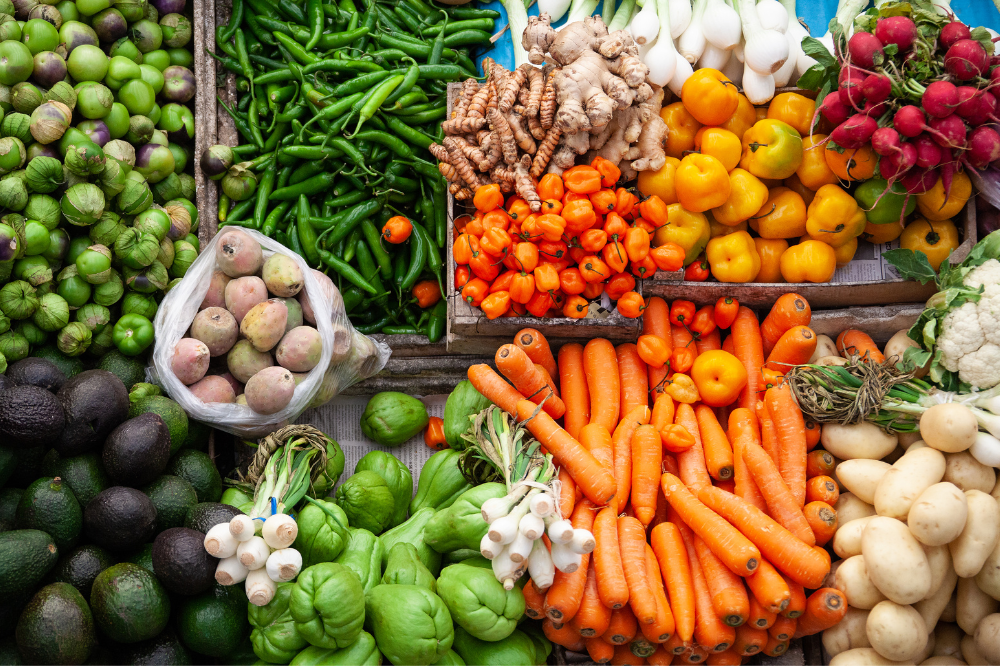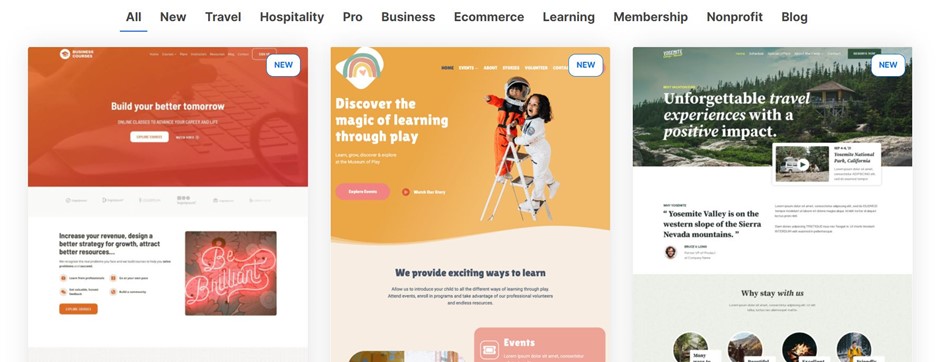1 Introduction to gardening
Gardening is a great way to get outdoors, enjoy the fresh air, and get some exercise. But starting a garden can be daunting, especially if you don’t have a lot of experience. In this article, we’ll give you some basic tips for starting a garden, including what to plant, how to care for your plants, and how to deal with common problems. For a sustainable lifestyle, it has become necessary to have a garden in the backyard or outdoor spaces. With a little effort, you can have a beautiful garden that will provide you with enjoyment for years to come.
2 Things to consider before starting gardening
The most important thing to consider when starting a garden is what type of plants you want to grow. Do you want flowers? Vegetables? Herbs? Some people like to grow all three in outdoor space, while others focus on just one type. Once you’ve decided what you want to grow, research which plants will do best in your particular cold climate and soil type. You can talk to experts at your local nursery or garden center, or look online for information.
Once you’ve chosen your plants, it’s time to start prepping your garden beds. This involves removing any weeds, rocks, or other debris that could interfere with the growth of your plants. You’ll also need to loosen the soil so that the roots of your plants can easily penetrate it. If you’re not sure how to do this, there are plenty of resources available online or at your local nursery.
After your beds are prepped and ready, it’s time to start planting! Be sure to plant your seeds or young plants at the correct depth and spacing, following the instructions on the packaging. Once your plants are in the ground, water them well.
3 Types of gardens
Before starting a gardening blog you must become familiar with different types of gardens, a few of them are listed below:

Ornamental gardens
A garden that is planted purely for its aesthetic value. These are the gardens where ornamental plants are planted from an artistic point of view.
Vegetable gardens
A garden that is used for growing vegetables and edible plants for home consumption.
Food gardens
Various food plants are planted to emulate the ecosystems and patterns found in nature.
Community Garden
A community garden is a plot of land that has been gardened or farmed by several individuals or groups of people. In communal gardens, the land is typically divided into individual plots. Each gardener is in charge of their plot, and whatever is produced there belongs to them.
4 What is a garden blog?
Garden blogs are a great way to get gardening tips and inspiration. They can also be a great way to connect with other gardeners and learn about new gardening techniques. Garden blogs can be written by anyone with a love of gardening, and they can cover a wide range of topics. Some popular gardening blog topics include plant care, landscaping, gardening projects, and gardening tips.
Whether you’re looking for gardening inspiration or simply want to stay up-to-date on gardening news, there’s a gardening blog out there for you.
5 Tips to start a gardening blog
If you’re passionate about plants and gardening, why not start a blog to share your knowledge and connect with others who love gardening as much as you do? Here are a few tips to get you started on creating a successful gardening blog:

Choose a focus for your blog
What kind of gardening do you specialize in? Do you have a green thumb for growing veggies, or are you an expert in landscaping and design? By narrowing your focus, you’ll be able to provide more targeted content that will appeal to like-minded readers.
Find your voice
Your blog should be a reflection of your personality, so write in a way that is authentic to you. Whether you’re writing about the successes (and failures of your own garden or providing tips and advice based on your years of experience, let your unique voice shine through.
Take great photos
A picture is worth a thousand words, so make sure to take plenty of high-quality photos of your garden, plants, and landscaping projects. This will help make your blog more visually appealing and will give readers a better sense of your work.
Be active on social media
In order to reach a wider audience, be sure to promote your blog on social media sites like Twitter, Facebook, and Pinterest. Share your latest posts, engage with other gardeners, and participate in online gardening communities to get your name out there.
Update regularly
One of the keys to keeping readers coming back is to update your blog regularly with fresh content. Aim for at least one new post per week, and vary the topics you write about to keep things interesting.
By following these tips, you’ll be well on your way to starting a successful gardening blog that will engage and inspire other plant lovers. So get writing and happy gardening!
6 What to write about in your gardening blog?
As a gardener, you have a wealth of knowledge and experience that others can benefit from. One way to share your expertise is by starting a gardening blog. Not only can this be a great way to connect with other gardeners, but it can also be a valuable resource for those looking to learn more about gardening.
There are many different topics you could write about in your gardening blog. For example, you could write about epic gardening, and organic gardening methods or share tips on how to start a vegetable garden. You could also write about the benefits of ornamental gardens or discuss the challenges of urban gardening.
7 What makes a great garden blog post?
Your experience with gardening helps you to make a great garden blog post. Whatever topic you choose, your goal should be to provide helpful information that will make it easier for others to enjoy the benefits of gardening. In addition to sharing your knowledge, a gardening blog can also be a great way to document your journey as a gardener. As you document your experiences, you may find that your blog becomes an invaluable resource for yourself as well as others.
8 Topics to start a creative gardening blog
There are endless possibilities when it comes to starting a gardening blog. The important thing is to find a niche that you are passionate about and share your knowledge with others who are interested in learning more. Some of the best topics for a creative gardening blog are listed below:
Organic Gardening
If you are an expert on organic gardening, you can share your tips and advice with others who are interested in learning more about this type of gardening. Organic gardening is a growing trend that has many benefits.
Organic gardening is better for the environment. Since organic gardens don’t use synthetic fertilizers or pesticides, they help to keep these harmful chemicals out of the soil and groundwater. Additionally, organic gardens are often more efficient than traditional gardens, since they don’t require as much water and fertilizer. They also tend to be more productive, yielding larger and healthier fruits and vegetables.
Organic gardening can be a great source of inspiration. Your organic gardening blogs can offer practical advice for readers on starting and maintaining an organic garden. Whether they’re looking to improve their health, save money, or help the environment, organic gardening is a great option.
Vegetable gardening
If you have a vegetable garden, you can blog about your experiences and share recipes that feature the produce that you grow. You can provide helpful tips and tricks for growing fresh vegetables at home.
Ornamental gardening
If you are passionate about ornamental gardens, you can share your knowledge about various plants, flowers, and lawn care. This can help readers decide what plants they would like to grow, how they will arrange them, and what type of maintenance routine they will need to follow.
Urban Gardens
If you live in an urban area and have urban gardens, you can share your tips for growing plants in small spaces. Urban gardening blogs can offer many benefits to city dwellers. For those who live in apartments or other small spaces, urban gardening can provide a way to have their garden. Even a simple tip for a windowsill herb garden can provide fresh herbs for cooking.
Gardening can also help to reduce stress and anxiety, and it can be a great way to get some exercise. In addition, urban gardening strategies can help to improve air quality and promote biodiversity. By planting native plants, urban gardeners can provide a habitat for local wildlife. And by choosing plants that are drought-tolerant and low-maintenance, they can help to reduce the water needs of the city. In sum, urban gardening provides several benefits that can improve the lives of those who live in cities.
Garden therapy
You can even write about garden therapy and how spending time in the garden can improve mental health. Blogs on garden therapy have been shown to have several benefits for both physical and mental health.
Your great blog can encourage people to grow a flower garden in an outdoor space. For instance, it can help to reduce stress, anxiety, and depression, while also promoting relaxation and improving overall well-being. Additionally, garden therapy can help to improve cognitive function and memory, and can even help to delay the onset of dementia.
There are so many more blog post topics that last longer like lawn care, frugal gardening tips, the landscape industry, epic gardening, organic farming, rain gardens, and edible gardens. Of course, you can always write about whatever strikes your fancy. The most important thing is to have fun and share your passion for all things green!
9 Benefits of garden blogging
Garden blogging provides numerous benefits both for individuals and businesses in the horticulture industry. For amateur gardeners, blogs can be inspirational, providing new ideas and perspectives on plant care and landscaping. For professionals, blogs can be a valuable marketing tool, promoting businesses and raising awareness of botanic gardens and other horticultural attractions.
In recent years, there has been a growing trend of garden bloggers collaborating, sharing content, and cross-promoting each other’s work. This has resulted in a more connected and engaged gardening community, with a greater exchange of information and resources. Overall, garden blogging provides many benefits for those involved in the horticulture industry, from inspiring amateurs to promoting businesses.
10 How to make money from a garden blog?
There are a number of ways that you can make money from your garden blog some of them are listed below:
Sell advertising space on your blog
You’ll be able to attract a sizable following and readership for the gardening blog if you have interesting information to share and have experience of some digital marketing techniques. The best part of gardening blogging is now here: making money off of your website. By signing up for Google AdSense, you can start monetizing your site right away. You authorize Google to display advertising on your blog by subscribing. You will receive payments for both these ad clicks and additional actions.
Write sponsored posts
By writing sponsored posts for companies related to the gardening business and the landscape industry or who want to reach your audience. Many businesses will pay you to publish their articles on your gardening blog because they want to reach a large audience. There’s a rationale for this.
According to surveys, about 80% of consumers read blogs before making a purchase. As a result, businesses looking to connect with these customers will visit your blog. You will receive payment for posting “sponsored posts” or “sponsored content” on your site. This is completely legal as long as you are certain that the content’s source is an actual corporation or business and that the content is safe and pertains to gardening.
Offer consultancy services to help people with their gardens
You can provide gardening advice to people for their new homes for example provide them tips for lawn care, and give them new landscaping ideas.
Create and sell products related to gardening
The landscaping industry is growing day by day. You can sell garden tools that people use to buy for their garden maintenance. You can sell lawn mower, planting bulbs, vegetable seeds, and even garden design through your inspiring blog.
Use affiliate links to earn commission
In the US the size of the landscaping industry has become too big. Joining several affiliate marketing organizations is one of the finest ways to earn money from a gardening blog. If you didn’t know, Amazon runs the world’s biggest affiliate marketing network. Each online retailer, including eBay, has its own affiliate program. You can make links to various products and put them on your site once you sign up as an affiliate. You can review products and write articles about them while incorporating an affiliate link into your blog’s main content. You receive a commission each time someone clicks the link and makes a purchase.
Teach courses or host webinars about gardening topics
You can earn via teaching courses or hosting webinars on gardening topics with a great way to share your knowledge with others. By sharing your passion for gardening, you can help others learn how to grow their own food and enjoy the many benefits of gardening.
Growing your own food is a rewarding experience that everyone should try at least once. Not only do you get to enjoy the satisfaction of knowing that you’re eating something you’ve grown yourself, but you also get to control the quality of your food and save money in the process. For those who are new to gardening, starting with container gardening or indoor gardening is a great way to get your feet wet.
Once you’ve mastered the basics, you can consider starting a community garden or food garden.
Sell photographs of gardens
With your great blog, you can earn money by selling photographs of gardens. That’s right – your passion for plants and love of photography can be combined to create a nice little income stream. There are a few different ways to go about it.
First, you could approach your local garden club and offer to take pictures at their events. Use these pictures in your gardening blog and sell advertising space to companies that sell garden supplies. Or, if you’re really ambitious, you could specialize in photographing specialty gardens, like butterfly gardens or frugal ideas about gardening.
No matter which route you choose, there’s sure to be a market for your garden photos. So get out there and start snapping away! The world is waiting to see your garden through your lens.
Offer personalized garden planning services
Using your great blog post you can offer different garden planning services. Being a master gardener you can provide gardening advice to a garden club to maintain their beautiful gardens. You can also sell your garden design ideas and give great gardening tips to local gardeners for specialty gardens.
Be a brand ambassador for a gardening company
With your blog post, there will be a great opportunity for you to become a brand ambassador for a newly started gardening company providing DIY garden projects.
11 FAQs about garden blogging
There are a lot of questions that arise in bloggers’ minds before starting a gardening blog, few of them are listed below:
1. What is a garden blog?
A garden blog is a website or blog that focuses on topics related to gardening, including plant care, garden design, and landscaping. Garden blogs often feature photos and videos of gardens, as well as tips and advice from expert gardeners.
2. Why should I start a garden blog?
There are many reasons to start a garden blog. For one, it’s a great way to share your passion for gardening with others. A garden blog can also be a valuable resource for fellow gardeners, providing information and inspiration on a variety of topics.
3. What do I need to start a garden blog?
All you need to start a garden blog is a computer and an internet connection. If you’re not sure where to start, there are plenty of blog templates and hosting platforms available online that make it easy to get started.
4. What should I write about on my garden blog?
The possibilities are endless when it comes to garden blog topics. Some popular ideas include plant profiles, gardening tips and tricks, landscaping ideas, and garden tours.
5. How often should I update my garden blog?
It’s up to you how often you update your garden blog. Some bloggers post daily, while others update weekly or monthly. The key is to find a schedule that works for you and stick to it.
6. Do I need to be a professional gardener to start a garden blog?
No, you don’t need to be a professional gardener to start a garden blog. However, it helps to have some knowledge about gardening before you start writing.
7. Can I make money from my garden blog?
Yes, you can make money from your garden blog. There are a number of ways to monetize a blog, such as through advertising, affiliate marketing, and product sales.
8. Do I need to live in a garden to start a garden blog?
No, you don’t need to live in a garden to start a garden blog. However, it helps to have access to a garden so you can take photos and write about your experiences.
9. What are some other garden blogs I can read?
Here are just a few of our favorite garden blogs:
Gardenista
Diggin’ It
Grow It, Eat It
The Impatient Gardener
10. I’m ready to start my garden blog. Now what?
Congratulations! You’re on your way to becoming a garden blogger.
12 Bottom Line
Garden blogging can be a fun and rewarding way to share your love of gardening with the world. Not only will you be able to teach others about your favorite hobby, but you may also learn a thing or two yourself by writing about it. If you’re looking for ways to make money from your blog, we’ve got some helpful tips for you. But whether you’re in it for the money or not, garden blogging is a great way to connect with other gardeners and build a community around this popular activity. In the meantime, be sure to read our other blogs for more tips to start blogging.
Have you started a garden blog yet?
What are some of the topics that interest you most?
We would love to hear from you in the comments section below.









